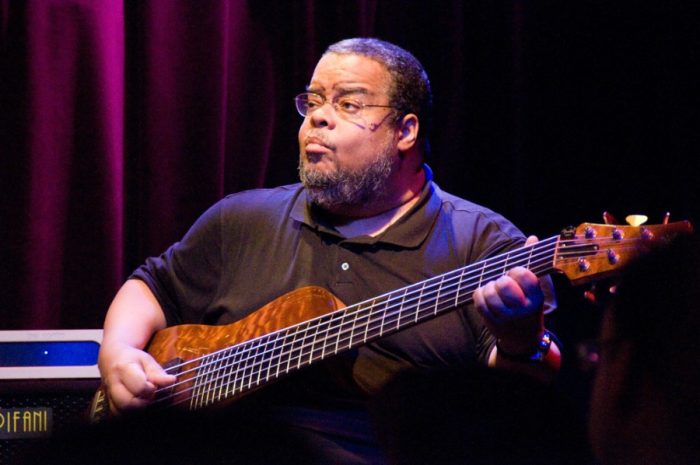Legendary bassplayer Anthony Jackson passed away
Anthony Jackson, the visionary who reinvented modern bass playing, passed away on October 19, 2025. The confirmation came from guitarist Al Di Meola, who wrote on social media: ‘Deeply saddened by the passing of my dear friend and legendary bassist Anthony Jackson. He was a true innovator whose genius on the six-string contrabass redefined modern music.’
Fodera Guitars, with whom Jackson had collaborated since the 1980s, also confirmed the news, honoring him as ‘one of the most visionary bassists in the history of our instrument.’
Born on June 23, 1952, in New York City, Jackson began on piano before switching to guitar, and ultimately— inspired by Motown legend James Jamerson—found his calling on the bass. But while others adapted to the instrument, Jackson adapted the instrument to his vision. In 1974, he approached luthier Carl Thompson with a revolutionary idea: a six-string bass guitar tuned in fourths (B-E-A-D-G-C), which he called the “contrabass guitar.”
‘Why is four the standard and not six?’ Jackson wondered. ‘As the lowest member of the guitar family, the instrument should have had six strings from the beginning.’ That philosophy changed the bass world forever.
Jackson’s influence stretched across more than 3,000 sessions on over 500 albums. His plucked bassline on “For the Love of Money” by The O’Jays became iconic. He laid the foundation for Steely Dan’s “Gaucho,” defined grooves for Chaka Khan and Paul Simon, and brought his precision to recordings for Michel Petrucciani, Chick Corea and Quincy Jones.
Yet Jackson may have reserved his most enchanting musical chemistry for his final major project: the Hiromi Trio Project. From 2011 to 2016, he formed a trio with virtuoso Japanese pianist Hiromi Uehara and drum legend Simon Phillips, pushing the boundaries of modern jazz. Together they made four albums: “Voice” (2011), “Move” (2012), “Alive” (2014) and “Spark” (2016), redefining the art of the piano trio with odd meters, explosive grooves and telepathic interplay.
The true magic emerged in the interplay during Hiromi’s solos, when Jackson and Phillips would spontaneously support, suggest and respond. The trio toured the world, leaving audiences in stunned silence. For those lucky enough to witness them live, Jackson’s presence was unforgettable—sitting, always sitting—with a dignity that infused every note with meaning. In this trio, Jackson’s musical power reached its apex: three virtuosos breathing as one organism, with his contrabass forming both foundation and architecture.
Health issues forced Jackson off the stage in 2016. After a series of strokes and a Parkinson’s diagnosis, he gave his final performance in 2017, once again with Hiromi and Phillips. He spent the years that followed in assisted living but never let go of his instrument. In February 2025, Shapeshifter Labs in Brooklyn organized a benefit concert where bassists from Ron Carter to Victor Wooten came together to honor him.
Anthony Jackson was not a man of the spotlight. He declined offers for solo albums for decades, choosing the life of a sideman over stardom. But in that shadow, he created light. Every bassline was an architectural marvel, every groove a blueprint of what was possible.
That vision now resonates through generations of bassists who have embraced his contrabass, through producers who return to his sessions, through musicians astonished by what one person can do with an instrument. Anthony Jackson did not just redefine an instrument—he redefined what it means to be a bassist.
The legendary contrabass pioneer who laid the foundation for more than 3,000 recordings has died at the age of 73.
![]()





